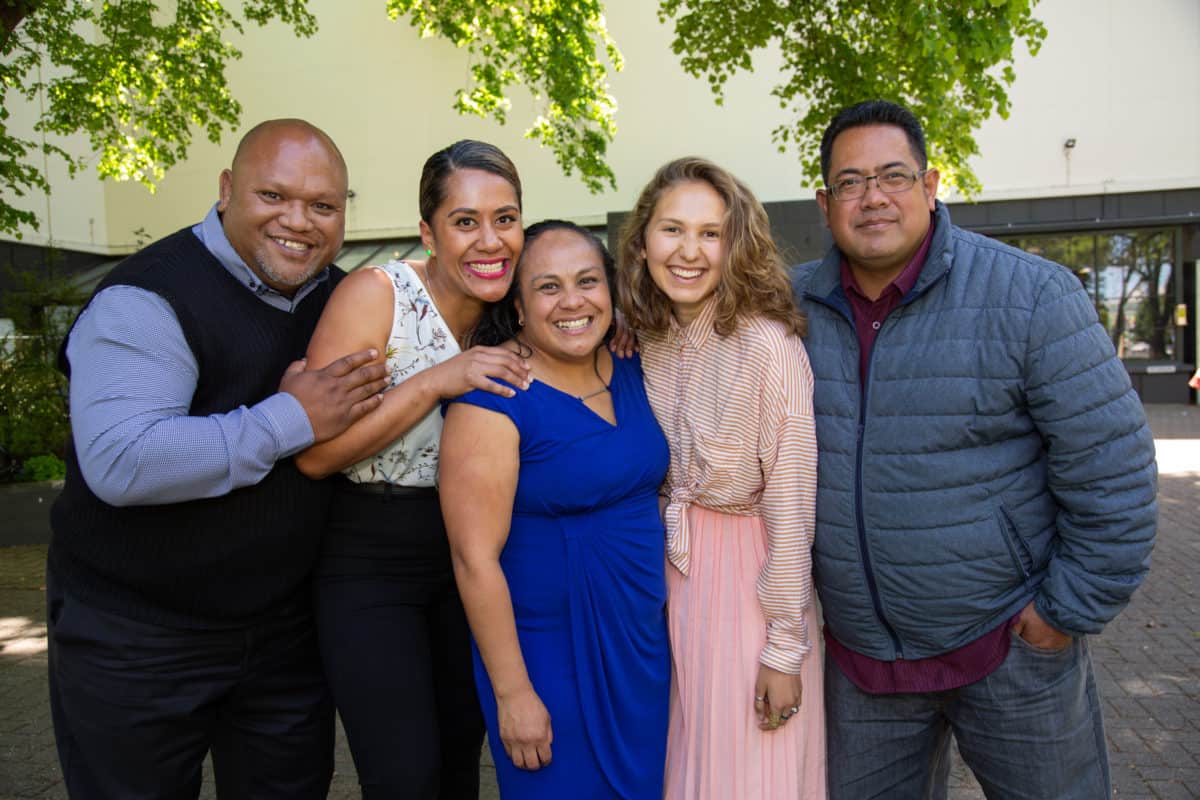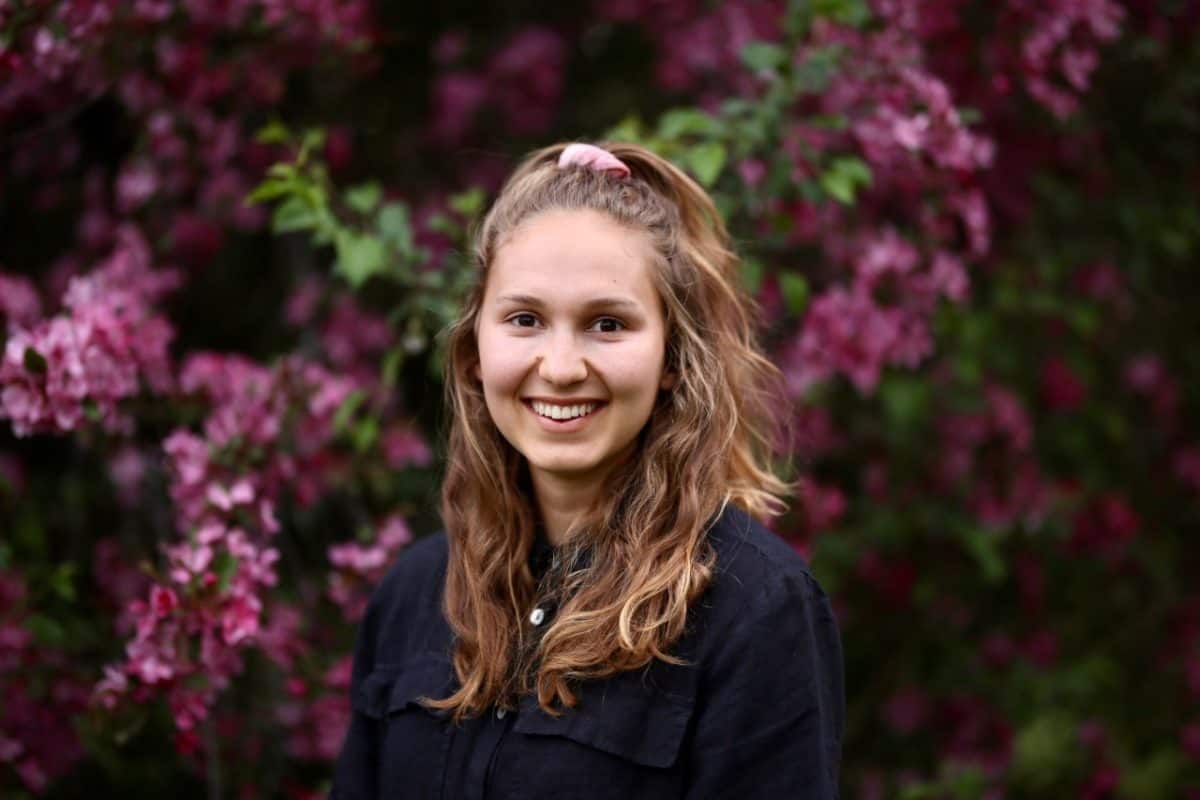Research voices: Dr Dani Prapavessis
29 October 2021
Dr Danielle (Dani) Prapavessis, a proud ‘Kiwi Canadian’, jumped at the chance to do her PhD in Aotearoa New Zealand, having spent the first twelve years of her life in Auckland. Dani’s family moved to Canada for work commitments, where she completed her secondary school years and undergraduate studies.
But Dani was lured back to New Zealand to undertake her PhD as part of the Pasifika Prediabetes Youth Empowerment Programme study (PPYEP)*, led by Massey University researcher Dr Riz Firestone. This study developed a collaborative partnership between university and community-based researchers, and two Pasifika communities in Auckland and Tokoroa, to empower youth to co-design, deliver and evaluate a community health intervention to prevent prediabetes.
Dani started out as an international consultant and collaborator for the PPYEP pilot study, YEP, having established a non-profit organisation in Canada which delivered youth empowerment programmes. But she was quickly identified by Dr Firestone as an ideal person to bring onboard for the next phase of the project – the PPYEP study.
Building relationships

Dani is very clear about what drew her to PPYEP. She had worked for a large Indigenous advocacy organisation in Canada as part of their health team, and had learnt that building relationships was the key to a successful programme.
“Over the few years working with Riz, and working with the team, and knowing about her [Riz’s] connections in the communities – this research [YEP and PPYEP] was founded on relationship-building, which I thought was really important.”
Dani had also noticed a real gap in the empowerment programmes that she had encountered in the past, in that they didn’t always clearly translate into community change. One of the attractions of PPYEP was that it was a practical, on-the-ground programme working with people in their own communities. She was also excited to be a part of the implementation and formal evaluation of a co-designed intervention.
New knowledge
Dani identified a number of key outcomes from her research, particularly noting how youth empowerment and co-design go really well together.
“Youth were learning about key issues to do with prediabetes, they were encouraged to think critically about their surroundings, what health means to them, and what it means to be a Pasifika youth in New Zealand”.
Empowering youth to co-design a health intervention and mobilise community strengths led to improvements in several key risk factors for prediabetes.
Another key outcome for Dani was learning how to build the capacity of the community, as ultimately she sees that the uptake and ownership of the project lies with the community. Her own experience of empowerment as a teenager has been influential in her engagement with PPYEP, and drives her belief in the power of youth to make positive change in their community.
Importance of mentors
Dani has been lucky to have had a number of mentors and particularly acknowledges Indigenous health advocate Kim Scott for encouraging her to pursue doctoral studies. She is incredibly grateful to Dr Riz Firestone for believing in her, advocating on her behalf and putting in the hard yards to make her PhD a reality. Peer support from her fellow doctoral students was both inspiring and invaluable for building cultural competency, motivating her every step of the way.
When you ask Dani what she would say to prospective PhD students, her answer is emphatic: “do it!” She explains that undertaking a PhD is a time to invest in yourself and your education. And it is a unique opportunity to both ask questions and find answers.
Paying it forward
While Dani jokes that she would love to be a part of Dr Firestone’s team forever, she feels that through her doctoral studies she has been able to develop her own academic voice. Having open and honest conversations with all the different groups involved in her project has been really helpful in this process:
“…learning how to trust myself and back myself, that my ideas are worthy and that is it important to take a stand for something, and as academics we have to!”
Having spent her PhD research empowering Pasifika youth to create positive change in their communities, Dani now feels empowered herself to use the new skills that she has learnt to make a difference in her Canadian community. Her experience with co-design has been invaluable in her new work facilitating design thinking processes, and gives her “a bit of an edge” as a facilitator and a consultant.
Full circle
Dani received some pertinent advice before starting her own PhD: you won’t be able to predict your final destination – there are so many things you can look at, so many avenues to explore. Being good at synthesising information and drawing it all together in a coherent narrative has been an important skill that Dani has nurtured throughout her studies.
She encourages aspiring researchers to discover what it is that they are passionate about – find out how your questions could move a field forward. And write. Take a writing course. Learn how to communicate the best way that you can.
Dani’s enduring reflection on her precious time back in New Zealand, in addition to enjoying the favourite landscapes of her childhood, is that her work in supporting youth to be health advocates in their communities has enabled her to “give back” to her first home of Aotearoa.
Pasifika Prediabetes Youth Empowerment Programme (PPYEP) research page
*PPYEP was funded by the Long-term Conditions Partnership between Healthier Lives, the Health Research Council and the Ministry of Health.
Other articles in this series:


